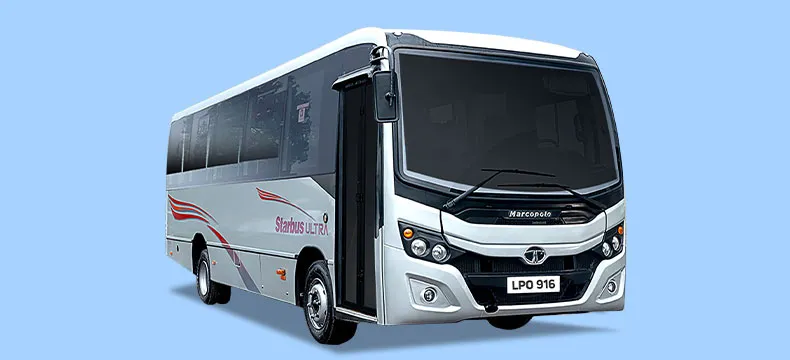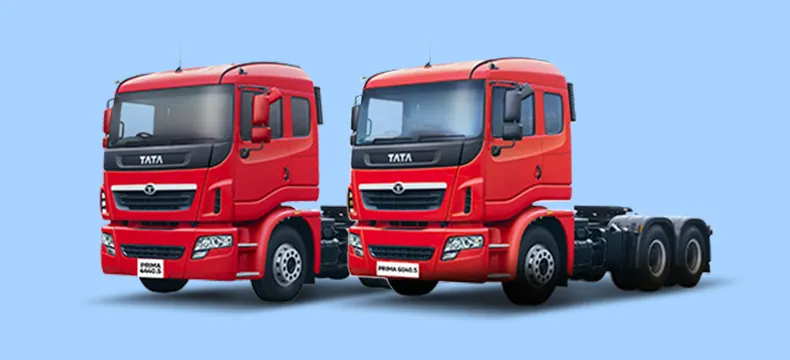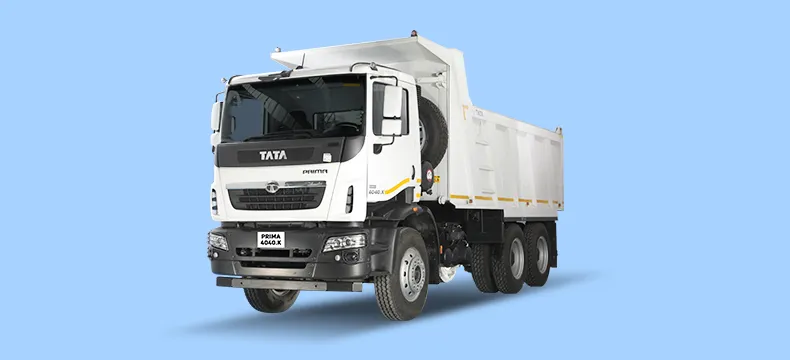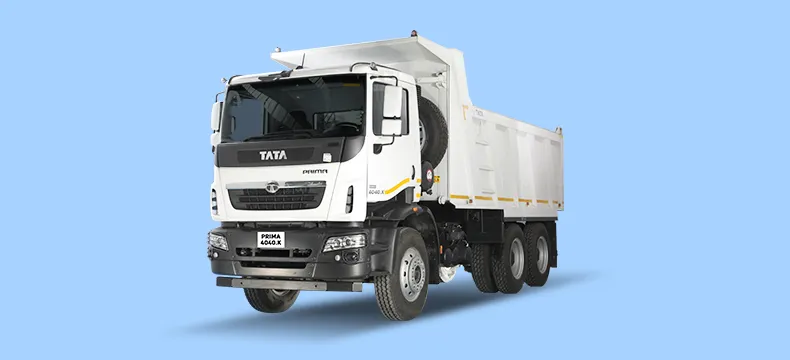10 Mar 2025

How Features and Technology from Upcoming Commercial Vehicle Launches Impact Saudi Arabia
- Tata Motors
- 27 Sep 2024
- Commercial Vehicle
Introduction
The landscape of commercial vehicles in Saudi Arabia is rapidly evolving, with new technological advancements and features poised to redefine industry standards. The introduction of upcoming commercial vehicle features promises to enhance efficiency, safety, and sustainability. This article delves into the current trends in the commercial vehicle market, explores key features and technologies in upcoming launches, and highlights the benefits of these innovations for Saudi Arabia.
Current Trends in Commercial Vehicles
The commercial vehicle market in Saudi Arabia is experiencing significant growth, driven by the country’s ambitious Vision 2030 plan. This initiative aims to diversify the economy and reduce its dependence on oil revenues, leading to increased investments in infrastructure and transportation. One of the prominent features gaining traction in commercial vehicles is the integration of advanced safety technologies. Modern commercial vehicles are now equipped with systems like advanced braking, lane-keeping assist, and collision avoidance systems, which are crucial for ensuring passenger and driver safety.
The shift towards greener transportation solutions is also evident with the growing interest in electric and hybrid commercial vehicles. These vehicles not only reduce emissions but also offer lower operating costs, aligning with global trends towards sustainability.Additionally, the adoption of smart technologies like telematics and IoT has revolutionised fleet management. These systems provide real-time data on vehicle performance, location, and driver behaviour, enabling better decision-making and resource optimisation.
Upcoming Launch: Key Features and Technologies
The upcoming commercial vehicle launches in Saudi Arabia are set to bring about transformative changes. Here are some of the key features and technologies to look forward to:
-
Electric and Hybrid Powertrains
One of the most anticipated features is the introduction of electric and hybrid powertrains. These powertrains are designed to reduce fuel consumption and emissions, making them an eco-friendly option for businesses. Electric buses are expected to become more prevalent in urban areas, contributing to cleaner air and reduced noise pollution.
-
Autonomous Driving Technologies
Autonomous driving technology is another significant development in the commercial vehicle sector. Upcoming models will feature advanced sensors, cameras, and AI systems that enable self-driving capabilities. These technologies promise to enhance operational efficiency, reduce driver fatigue, and improve road safety.
-
Enhanced Safety Features
Safety remains a top priority in the design of new commercial vehicles. Upcoming models will include advanced safety systems such as automatic emergency braking, adaptive cruise control, and driver monitoring systems. These features are designed to prevent accidents and protect passengers, making commercial vehicles safer than ever before.
-
Smart Connectivity and Telematics
The integration of telematics and IoT in commercial vehicles allows seamless connectivity between vehicles, fleet managers, and infrastructure. Real-time data exchange enables predictive maintenance, route optimisation, and fuel management. This connectivity enhances the overall efficiency and reliability of commercial fleets.
-
Improved Passenger Comfort
Comfort is also a key focus in the design of new commercial buses. Features such as ergonomic seating, climate control, and noise reduction technologies ensure a pleasant travel experience for passengers. These new features are essential for long-distance travel and public transportation.
New Bus Features and Their Benefits
The upcoming bus features in Saudi Arabia are expected to bring numerous benefits to the market. Firstly, the adoption of electric and hybrid powertrains will significantly reduce the transportation sector’s carbon footprint. This aligns with Saudi Arabia’s environmental goals and contributes to global efforts to combat climate change.
Secondly, autonomous driving technologies will enhance operational efficiency by reducing the need for human intervention and minimizing errors. This will result in lower operating costs and increased productivity for businesses. Enhanced safety features will protect passengers and reduce the likelihood of accidents, leading to lower insurance premiums and maintenance costs.
Furthermore, the integration of smart connectivity and telematics will enable fleet managers to monitor vehicle performance and driver behavior in real-time. This will help optimize routes, reduce fuel consumption, and ensure timely maintenance, improving overall fleet efficiency. Improved passenger comfort features will make public transportation more appealing, encouraging more people to use buses and reducing traffic congestion.
Conclusion
In conclusion, the upcoming commercial vehicle features are set to revolutionise the Saudi Arabian market. With advancements in electric and hybrid powertrains, autonomous driving technologies, enhanced safety systems, and smart connectivity, the future of commercial vehicles looks promising. These innovations will improve efficiency, safety, and sustainability, benefiting both businesses and passengers.
Embrace the future of commercial transportation with the Tata LPO 916, designed to integrate cutting-edge technologies that enhance efficiency, safety, and passenger comfort. Whether you’re looking to reduce operational costs or improve fleet reliability, the LPO 916 offers the innovation you need to stay ahead in the market.
FAQ
What are the most significant features of the upcoming commercial vehicles for Saudi Arabia?
The most significant features include electric and hybrid powertrains, autonomous driving technologies, enhanced safety systems, smart connectivity and telematics, and improved passenger comfort.
How will electric and hybrid commercial vehicles benefit businesses in Saudi Arabia?
Electric and hybrid commercial vehicles will benefit businesses by reducing fuel consumption and emissions, leading to lower operating costs and a smaller carbon footprint. These vehicles also offer quieter and smoother operation, enhancing the overall travel experience.
How will these new technologies impact the Saudi Arabian commercial vehicle market?
The new technologies will revolutionise the market by improving operational efficiency, safety, and sustainability. Businesses will benefit from lower costs and increased productivity, while passengers will enjoy safer and more comfortable travel. Adopting these technologies will align with Saudi Arabia’s environmental goals and contribute to global sustainability efforts.
- Tags



















